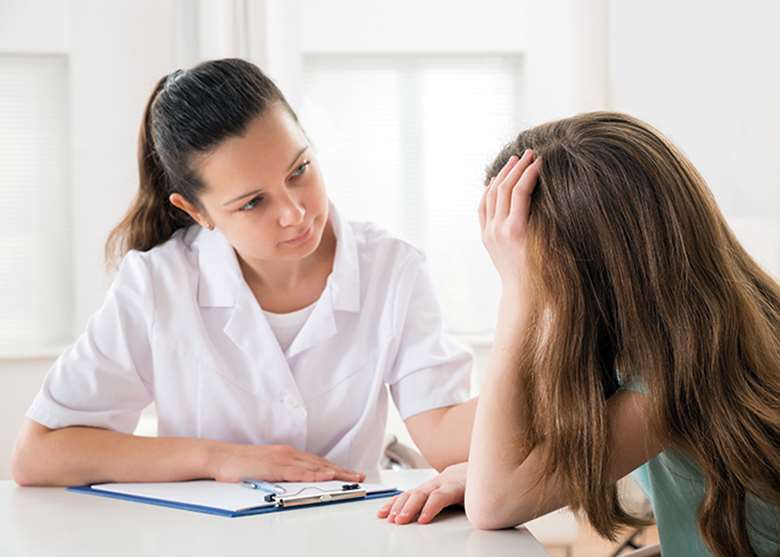Speaking up for talking therapies
Dr Duncan Law
Tuesday, December 6, 2016
Why the value of the government's talking therapies programme goes beyond recovery rates.

Research that found just one in three young people treated under the Children and Young People Improving Access to Psychological Therapies (CYP IAPT) programme seems shocking at face value, but to suggest the initiative has failed is far from accurate (see below).
This is the first time we have had data for community-based children and young people's mental health services to consider and, as such, the figures may not tell the whole story. What should we make of the apparently low recovery rate reported by Child Outcomes Research Consortium (CORC)?
As the report makes clear, even with better data quality, we should not expect recovery rates from services for children to be even close to 100 per cent.
The widely varied presenting difficulties to children's mental health services and the multi-systemic causes of children's mental health problems mean only some are accessible to interventions.
Even so, of those who completed goals-based outcomes (albeit a very small sample), nine out of 10 reported moving towards their goals and there were very high endorsement rates for receiving good help from services (eight out of 10 children, nine out of 10 parents).
There is no evidence in the report to suggest services are failing; as it points out they are in line with, or better than, the few international reports in this area.
The CYP IAPT programme was ambitious from its outset; it was created to support change across voluntary and statutory mental health services, and to reorientate provision towards evidence-based, client-led interventions that allowed children and young people to take greater charge of their treatment. The ambitious goal of measuring all conditions in child mental health - from depression to psychosis, from behaviour problems to eating disorders - is unmatched.
If we are to have open debate about how best to improve services, we cannot shy away from difficult questions and that includes acknowledging that not every child or young person will "recover".
As well as examining our own practice, we also need to consider what "good" looks like from the perspective of children, young people and families in the circumstances where recovery is not an option.
While there has been no formal evaluation of CYP IAPT, a relatively comprehensive internal audit has been undertaken. It found improved efficiency, success in the spreading of evidence-based therapies and increased participation by children, young people and carers.
The audit found that the time between referral and assessment decreased by 73 per cent (from 239 to 64 days) at a time when staffing in community services did not increase. It demonstrated improvements in accessibility through self-referral routes, single points of access, outreach services, and evening and weekend appointments.
The audit also revealed that a substantial proportion of young people in the service were still not receiving the recommended evidence-based treatment.
It highlighted a number of challenges to the implementation of CYP IAPT; foremost among these were failures of information technology to support adequate routine outcomes monitoring. This resulted in the low levels of outcomes data we have to date.
Ideally, CYP IAPT would have been funded to train new staff including those outside specialist children's mental health services.
The original commission to meet the skills deficit for therapists limited the programme's ability to develop the skills of the workforce outside of traditional service settings who work every day with some of the most troubled and traumatised young people: in pupil referral units, youth offending teams, residential units.
Compare children's mental health services as they are now to how they were five years ago. Despite at least 10 per cent year-on-year increases in referrals, an unprecedented reduction in staffing, and demand far outstripping capacity, services are more responsive to the wishes and goals of young people, offer more evidence-based care, and have more engagement with service users.
I believe that without CYP IAPT, we would not be in the relatively strong position that services are in to oversee the most radical transformation of the pattern of service provision in child mental health since the establishment of child guidance clinics 80 years ago.
CYP IAPT is not, nor ever intended to be, the answer to all of the child mental health system's problems.
My belief that the programme has resulted in significant benefits to services and the wellbeing of children is founded on experiencing the iterative review of its progress.
The emerging data is not sufficiently robust to either condemn or condone. What it does provide, for the first time, is a benchmark against which to gauge expectations of services, and ask some challenging questions about our child mental health systems, so we can begin to evaluate them and ultimately improve them.
ABOUT YOUNG PEOPLE'S IAPT
- The CYP IPAT programme will help all 0-19s access talking therapies for conditions such as eating disorders, depression, self-harm and conduct issues by 2019.
- £172m has been allocated since 2011 to expand coverage across England.
- The programme trains existing CAMHS staff to deliver therapies.
- A recent study by the Child OutcomesResearch Consortium (CORC), found one in three children reported a recovery at the end of treatment, half said they had improved and one in 10 reported deterioration.
- One in five parents reported that their child had recovered, with 40 per cent recording an improvement and 10 per cent a deterioration.
Source: NHS England; CORC
Dr Duncan Law is clinical lead for London and the South East Children and Young People Improving Access to Psychological Therapies programme




